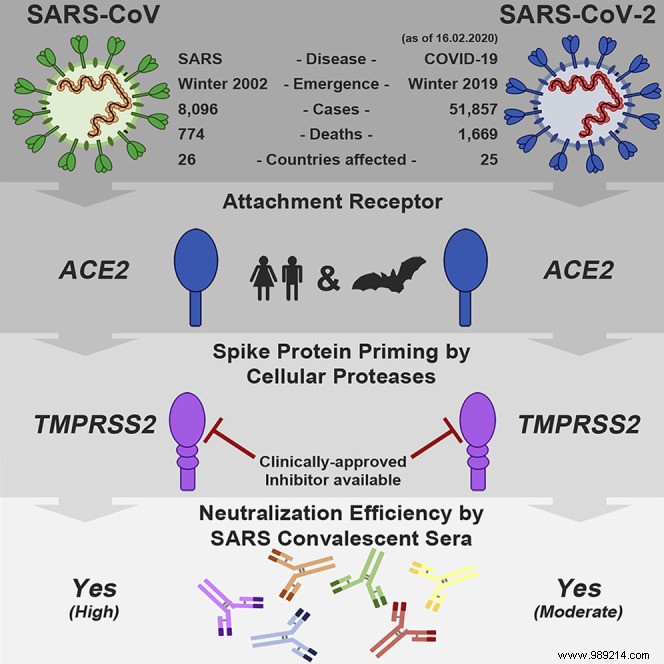French researchers recently claimed to follow a serious lead concerning a local treatment of Covid-19. They isolated extracellular vesicles in vitro , these acting as a biological decoy capable of "cheating" the virus. What is the potential of this track?
Recall that the SARS-CoV-2 coronavirus is covered on its surface by a spiked "S" protein. This characteristic gives it this crown-shaped appearance (coronavirus). In order to penetrate the cells of the human body and in particular those of the lungs, the S protein will bind to a receptor present on their surface:the ACE2 receptor. Then, another receptor (TMPRSS2) is responsible for transforming the S protein in order to open the way to the interior of the cells (see diagram below).

Researchers from the Institut Curie have published a study in The Journal of Extracellular Vesicles on December 28, 2020. Clotilde Théry (INSERM) and her team have isolated extracellular vesicles from cultured cells. However, these extracellular vesicles presented on their surface ACE2 receptors, with or without TMPRSS2 receptor. Remember in passing that extracellular vesicles are naturally produced in our body. Having the appearance of "little bubbles", their surface resembles that of human cells.
The study showed that the S protein of SARS-CoV-2 is able to recognize these vesicles, which can thus serve as a biological decoy. They trap the virus by preventing it from attaching to cells while reducing its infectivity. In addition, the study scientists claimed that the effectiveness of the vesicles was directly related to their number of ACE2 receptors. In addition, this efficiency is increased in the presence of TMPRSS2 receptors. For researchers, extracellular vesicles represent a serious avenue for treating the disease locally . This could in particular make it possible to reduce the risk of infection or even reduce the extent of the infection.
“The vesicles we have isolated serve as a decoy to the SARS-CoV-2 virus and neutralize it. They could therefore be easily used in local treatment against Covid-19 “, said Clotilde Théry.
The French researchers have in any case declared that they want to pursue this therapeutic approach new and unique. Their objective will be in particular to obtain details on its feasibility, its effectiveness and on the possible presence of side effects. If this solution is validated, it will then become possible to develop a drug.